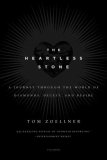Summary | Excerpt | Reviews | Beyond the Book | Readalikes | Genres & Themes | Author Bio

Critics' Opinion:
Readers' Opinion:
First Published:
May 2006, 288 pages
Paperback:
Jun 2007, 304 pages
 Book Reviewed by:
Book Reviewed by:
BookBrowse Review Team
Buy This Book
When the independence movement swept Africa in the late 1950s,
the region was among the first to break away from its colonial masters. The
first president, Barthélémy Boganda, consolidated power in 1958 and tried to
build a democracy out of the green web of clans and villages that shared little
but language and hunger. The name, Central African Republic, was as empty as the
results. The first of a long series of military coups took place eight years
after independence, when General Jean-Bédel Bokassa and a band of soliders took
control of the Presidential Palace. Bokassa began an aggressive program of
building up the nation’s infrastructure, and his own wealth, in the process.
About half of the 375 kilometers of asphalt road in the country—mostly potholed
streets in Bangui—can be credited to Bokassa’s initiative at teasing development
money in exchange for uranium that helped France build its nuclear program.
Bokassa’s ego was titanic, even by the supersized standards of
twentieth-century African strongmen. He built a new television station to
broadcast his speeches, even though there were an estimated forty sets in the
entire country at the time. He married seventeen wives, converted back and forth
from Islam to Christianity, and had an extra-long military jacket tailored to
accommodate all the various medals he awarded himself. But it was not enough. To
the astonishment of even his most dedicated sycophants, he decided to declare
himself "Emperor Bokassa I," and changed the name of his landlocked nation to
the Central African Empire to suit his new title.
He had himself crowned emperor on December 4, 1977, in a
spectacle that cost about a third of the nation’s gross national product.
Hundreds of mango trees that had lined Bangui’s wide avenues were cut down to
better accommodate the imperial procession, and a good portion of the capital’s
population was compelled to march behind a train of white horses imported from
Belgium, pulling an antique coach decorated with golden eagles. Inside was the
new Emperor Bokassa, almost lost within a 32-pound coronation robe with 2
million tiny pearls and crystal beads sewn into the fabric. Atop his head was a
crown that cost $2 million, with a doorknob-sized 138-carat diamond as
centerpiece.
It was an appropriate symbol, for diamonds had helped keep him
in power. Bokassa had given several of his country’s big-carat discoveries to
his close ally and game-hunting partner, French president Valéry Giscard
d’Estaing. The disclosure of the gifts embarrassed the French president, but not
nearly as much as what happened in the winter of 1979. Bokassa decreed that all
the nation’s schoolchildren should wear uniforms—and the only uniform producer
in Bangui happened to be one of his wives. Poor children (there is almost no
other variety of child in Bangui) couldn’t begin to afford the expense and a
group of them threw rocks at the emperor’s limousine one day in protest. An
enraged Bokassa rounded up approximately one hundred children, innocent and
guilty alike, and had them murdered. Bokassa killed many himself, and kept their
remains in a refrigerator in his palace.
In the same larder he kept the corpses of some of the political
enemies he had liquidated, and Bokassa was said to have snacked on their brains
and hearts. The French were mortified enough to engineer a coup that relieved
the emperor of power, especially after Bokassa claimed that he had
surreptitiously fed human flesh to an unwitting President Giscard d’Estaing
during several of their banquets together. The testimony of the palace chef at a
1986 trial was damning. Bokassa was sentenced to lifetime house arrest in a
small house in Bangui, where he was treated something like an aged lion in a
zoo. He died in 1996.
Copyright © 2006 by Tom Zoellner





The Flower Sisters
by Michelle Collins Anderson
From the new Fannie Flagg of the Ozarks, a richly-woven story of family, forgiveness, and reinvention.

The House on Biscayne Bay
by Chanel Cleeton
As death stalks a gothic mansion in Miami, the lives of two women intertwine as the past and present collide.

The Funeral Cryer by Wenyan Lu
Debut novelist Wenyan Lu brings us this witty yet profound story about one woman's midlife reawakening in contemporary rural China.
Your guide toexceptional books
BookBrowse seeks out and recommends the best in contemporary fiction and nonfiction—books that not only engage and entertain but also deepen our understanding of ourselves and the world around us.